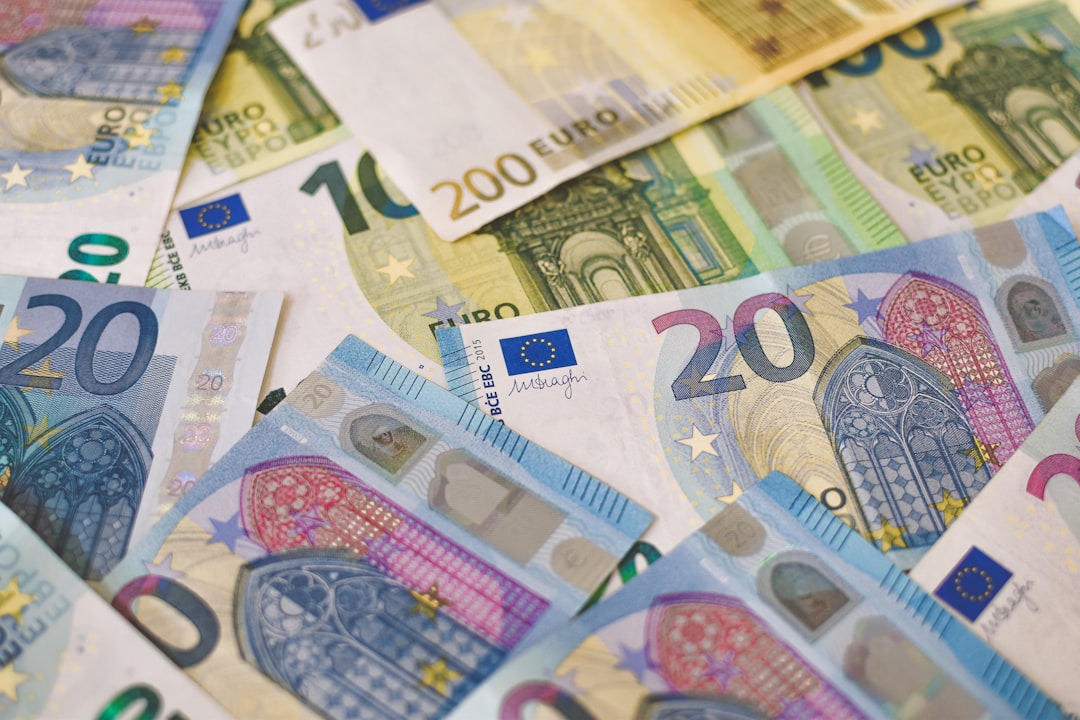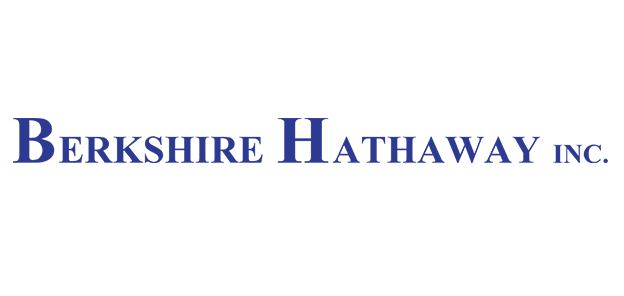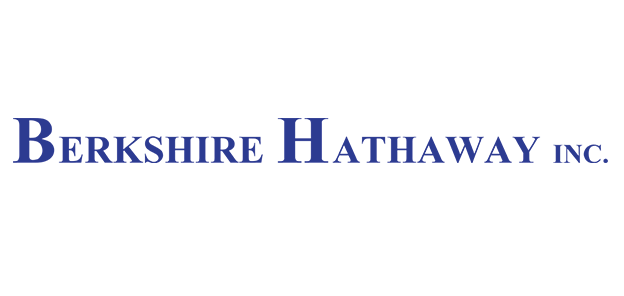Berkshire Hathaway’s Cash Reserves Surge as Warren Buffett Pulls Back from Stocks

Berkshire Hathaway’s Cash Reserves Surge as Warren Buffett Pulls Back from Stocks
Berkshire Hathaway, under the leadership of Warren Buffett, has recently seen its cash reserves swell to a staggering $277 billion. This significant increase in cash holdings comes as Buffett scales back his investments in stocks, a move that has caught the attention of investors and analysts alike. Here’s a detailed look at the implications of this development and what it means for the company and the broader market.
Key Takeaways from Berkshire Hathaway’s Latest Financial Report
-
Record Operating Profit: Despite pulling back from stock investments, Berkshire Hathaway has achieved record operating profits. This highlights the strength and resilience of its core businesses and investment portfolio, which continue to generate substantial revenue.
-
Increased Cash Reserves: The company’s cash reserves have reached an all-time high of $277 billion. This accumulation of cash is indicative of Buffett's cautious approach to the current market environment, reflecting concerns about overvaluations and potential market volatility.
-
Strategic Investment Adjustments: Buffett’s reduced investment in stocks may signal a shift in strategy, focusing more on preserving capital and awaiting attractive investment opportunities. This conservative approach could be a response to uncertainties in the market or potential economic downturns.
-
Impact on Shareholders: For shareholders, the increase in cash reserves presents a mixed picture. On one hand, it signifies a strong liquidity position, but on the other, it raises questions about the allocation of capital and future growth prospects. Investors are closely watching how Berkshire Hathaway plans to utilize this cash in the coming periods.
Implications for the Market and Investors
-
Market Sentiment: Buffett’s decision to pull back from stocks could influence market sentiment, potentially signaling concerns about market valuations and economic conditions. Investors may interpret this move as a cautionary sign and adjust their own investment strategies accordingly.
-
Opportunities for Strategic Investments: With a substantial cash reserve, Berkshire Hathaway is well-positioned to capitalize on future investment opportunities. This could involve acquisitions, new investments, or strategic partnerships that may enhance long-term growth prospects.
-
Focus on Core Businesses: The record operating profits underscore the strength of Berkshire Hathaway’s core businesses. Investors might look to these businesses as stable and reliable sources of revenue, even in uncertain market conditions.
-
Future Outlook: Investors should keep an eye on how Berkshire Hathaway deploys its cash reserves and any potential shifts in its investment strategy. This could provide insights into Buffett’s market outlook and the company’s long-term growth plans.
Enhance Your Investment Analysis
To navigate market fluctuations and make informed investment decisions, utilize advanced financial tools for deeper insights into company performance. FMP’s Owner Earnings API offers a comprehensive view of a company’s true profitability, factoring in all expenses, including taxes and debt payments.
???? Unlock True Profitability Insights with FMP's Owner Earnings API!
Evaluate a company’s financial health and compare it with competitors using precise, data-driven insights. Explore the API here: FMP Owner Earnings API.
Equip yourself with accurate financial data to enhance your investment strategies and stay informed about market developments!
| Symbol | Price | %chg |
|---|---|---|
| SMMA.JK | 14600 | 2.57 |
| TUGU.JK | 930 | 0.54 |
| 031210.KS | 40700 | 1.11 |
| AMAG.JK | 360 | 0.56 |

Berkshire Hathaway Inc. (NYSE:BRK-B) Financial Performance and Market Valuation
- Earnings Per Share (EPS) of $4.72 met market expectations, showcasing the company's consistent performance.
- Revenue of approximately $93.86 billion significantly surpassed estimates, highlighting the effectiveness of its diverse business model.
- The company's financial health is solid, with a low debt-to-equity ratio of 0.22 and a strong current ratio of 5.94.
Berkshire Hathaway Inc. (NYSE:BRK-B) is a multinational conglomerate holding company led by renowned investor Warren Buffett. It owns a diverse range of businesses, including insurance, railroads, utilities, and manufacturing. The company is known for its strong financial performance and strategic acquisitions. Competitors include large conglomerates like General Electric and investment firms such as BlackRock.
On May 3, 2025, BRK-B reported earnings per share (EPS) of $4.72, aligning perfectly with market expectations. The company achieved a revenue of approximately $93.86 billion, significantly surpassing the estimated $81.59 billion. This revenue beat highlights the company's robust business model and ability to generate substantial income across its diverse portfolio.
Despite the impressive revenue figures, Berkshire Hathaway's operating earnings fell short of expectations. This shortfall is partly due to a 48% decline in insurance earnings, primarily impacted by wildfires in California. However, BNSF, a subsidiary of Berkshire Hathaway, delivered strong results, marking a positive shift from past trends and contributing to the overall revenue success.
Berkshire Hathaway's financial metrics provide further insight into its market valuation. The company has a price-to-earnings (P/E) ratio of approximately 13.08, indicating how the market values its earnings. Its price-to-sales ratio is about 2.74, reflecting the market's valuation of its revenue. Additionally, the enterprise value to sales ratio stands at 2.97, offering another perspective on its valuation relative to sales.
The company's financial health is underscored by a low debt-to-equity ratio of 0.22, indicating a conservative approach to debt. A strong current ratio of 5.94 highlights its ability to cover short-term liabilities with short-term assets. Despite a high enterprise value to operating cash flow ratio of 41.19, Berkshire Hathaway maintains an earnings yield of approximately 7.64%, providing a solid return on investment.

Berkshire Hathaway Inc. (NYSE:BRK-B) Financial Performance and Market Valuation
- Earnings Per Share (EPS) of $4.72 met market expectations, showcasing the company's consistent performance.
- Revenue of approximately $93.86 billion significantly surpassed estimates, highlighting the effectiveness of its diverse business model.
- The company's financial health is solid, with a low debt-to-equity ratio of 0.22 and a strong current ratio of 5.94.
Berkshire Hathaway Inc. (NYSE:BRK-B) is a multinational conglomerate holding company led by renowned investor Warren Buffett. It owns a diverse range of businesses, including insurance, railroads, utilities, and manufacturing. The company is known for its strong financial performance and strategic acquisitions. Competitors include large conglomerates like General Electric and investment firms such as BlackRock.
On May 3, 2025, BRK-B reported earnings per share (EPS) of $4.72, aligning perfectly with market expectations. The company achieved a revenue of approximately $93.86 billion, significantly surpassing the estimated $81.59 billion. This revenue beat highlights the company's robust business model and ability to generate substantial income across its diverse portfolio.
Despite the impressive revenue figures, Berkshire Hathaway's operating earnings fell short of expectations. This shortfall is partly due to a 48% decline in insurance earnings, primarily impacted by wildfires in California. However, BNSF, a subsidiary of Berkshire Hathaway, delivered strong results, marking a positive shift from past trends and contributing to the overall revenue success.
Berkshire Hathaway's financial metrics provide further insight into its market valuation. The company has a price-to-earnings (P/E) ratio of approximately 13.08, indicating how the market values its earnings. Its price-to-sales ratio is about 2.74, reflecting the market's valuation of its revenue. Additionally, the enterprise value to sales ratio stands at 2.97, offering another perspective on its valuation relative to sales.
The company's financial health is underscored by a low debt-to-equity ratio of 0.22, indicating a conservative approach to debt. A strong current ratio of 5.94 highlights its ability to cover short-term liabilities with short-term assets. Despite a high enterprise value to operating cash flow ratio of 41.19, Berkshire Hathaway maintains an earnings yield of approximately 7.64%, providing a solid return on investment.

Berkshire Hathaway Inc. (NYSE:BRK-B) Surpasses Earnings Estimates
- Earnings per share of $4.74, surpassing the estimated $4.22.
- Operating profit surged by 27% to $47.44 billion in 2024.
- Record cash reserves of $334 billion, indicating strong financial health.
Berkshire Hathaway Inc. (NYSE:BRK-B), led by Warren Buffett, is a multinational conglomerate holding company. It owns a diverse range of businesses, including insurance, utilities, railroads, and manufacturing. The company is known for its strong financial performance and strategic investments in companies like Apple and American Express. Berkshire competes with other large conglomerates and investment firms.
On February 22, 2025, BRK-B reported earnings per share of $4.74, surpassing the estimated $4.22. This achievement is part of a broader trend of strong financial performance. In 2024, Berkshire's operating profit surged by 27% to $47.44 billion, driven by significant increases in underwriting earnings and investment income within its insurance businesses. This growth reflects the company's ability to capitalize on favorable market conditions.
Berkshire's revenue of approximately $95.72 billion exceeded the estimated $89.86 billion. The company's fourth-quarter operating profit set a new record, climbing 71% to $14.53 billion. This impressive growth was largely driven by a substantial 302% increase in insurance underwriting profits, which rose to $3.4 billion. Additionally, the company's insurance investment income saw a nearly 50% rise, reaching $4.1 billion.
The conglomerate's financial strength is further highlighted by its cash reserves, which swelled to a record $334 billion. Despite 53% of its 189 operating businesses experiencing a decline in earnings, Berkshire benefited from a significant gain in investment income. This was attributed to improved Treasury Bill yields and an increase in holdings of these short-term securities. In 2024, Berkshire's Class A shares experienced a notable increase of over 25%.
Berkshire Hathaway's financial metrics indicate a strong position in the market. The company has a price-to-earnings (P/E) ratio of approximately 9.65, a price-to-sales ratio of about 3.27, and an enterprise value to sales ratio of around 3.55. The enterprise value to operating cash flow ratio is approximately 27.74, and the earnings yield is about 10.36%. With a debt-to-equity ratio of roughly 0.20 and a current ratio of 25.34, Berkshire demonstrates strong liquidity and a low level of debt compared to its equity.

Berkshire Hathaway Inc. (NYSE:BRK-B) Surpasses Earnings Estimates
- Earnings per share of $4.74, surpassing the estimated $4.22.
- Operating profit surged by 27% to $47.44 billion in 2024.
- Record cash reserves of $334 billion, indicating strong financial health.
Berkshire Hathaway Inc. (NYSE:BRK-B), led by Warren Buffett, is a multinational conglomerate holding company. It owns a diverse range of businesses, including insurance, utilities, railroads, and manufacturing. The company is known for its strong financial performance and strategic investments in companies like Apple and American Express. Berkshire competes with other large conglomerates and investment firms.
On February 22, 2025, BRK-B reported earnings per share of $4.74, surpassing the estimated $4.22. This achievement is part of a broader trend of strong financial performance. In 2024, Berkshire's operating profit surged by 27% to $47.44 billion, driven by significant increases in underwriting earnings and investment income within its insurance businesses. This growth reflects the company's ability to capitalize on favorable market conditions.
Berkshire's revenue of approximately $95.72 billion exceeded the estimated $89.86 billion. The company's fourth-quarter operating profit set a new record, climbing 71% to $14.53 billion. This impressive growth was largely driven by a substantial 302% increase in insurance underwriting profits, which rose to $3.4 billion. Additionally, the company's insurance investment income saw a nearly 50% rise, reaching $4.1 billion.
The conglomerate's financial strength is further highlighted by its cash reserves, which swelled to a record $334 billion. Despite 53% of its 189 operating businesses experiencing a decline in earnings, Berkshire benefited from a significant gain in investment income. This was attributed to improved Treasury Bill yields and an increase in holdings of these short-term securities. In 2024, Berkshire's Class A shares experienced a notable increase of over 25%.
Berkshire Hathaway's financial metrics indicate a strong position in the market. The company has a price-to-earnings (P/E) ratio of approximately 9.65, a price-to-sales ratio of about 3.27, and an enterprise value to sales ratio of around 3.55. The enterprise value to operating cash flow ratio is approximately 27.74, and the earnings yield is about 10.36%. With a debt-to-equity ratio of roughly 0.20 and a current ratio of 25.34, Berkshire demonstrates strong liquidity and a low level of debt compared to its equity.

Berkshire Hathaway Inc. (NYSE:BRK-B) Quarterly Earnings and Strategic Moves
- Berkshire Hathaway Inc. (NYSE:BRK-B) is set to release its quarterly earnings with an estimated EPS of $4.22 and projected revenue of $90.38 billion.
- The company's strategic exit from its S&P 500 index funds is a move towards value investment, reflecting its prudent investment strategy.
- Key financial metrics such as a P/E ratio of 9.74, earnings yield of 10.27%, and a debt-to-equity ratio of 0.20 highlight Berkshire Hathaway's strong market position and financial health.
Berkshire Hathaway Inc. (NYSE:BRK-B) is a multinational conglomerate holding company led by Warren Buffett. It owns a diverse range of businesses, including insurance, utilities, and manufacturing. The company is set to release its quarterly earnings on February 22, 2025, with analysts estimating an EPS of $4.22 and projected revenue of $90.38 billion.
Berkshire Hathaway's decision to exit its S&P 500 index funds is strategic, especially as the index approaches high valuations similar to the 2000 tech bubble. This move aligns with the company's prudent investment strategy, focusing on value rather than market trends. The company's P/E ratio of 9.74 suggests a conservative valuation compared to the broader market.
The company's financial metrics reflect its strong market position. With a price-to-sales ratio of 3.30 and an enterprise value to sales ratio of 3.58, Berkshire Hathaway's market value is well-supported by its sales figures. The enterprise value to operating cash flow ratio of 27.97 indicates a robust cash flow, essential for sustaining operations and investments.
Berkshire Hathaway's financial health is further underscored by its earnings yield of 10.27%, offering investors a solid return on investment. The debt-to-equity ratio of 0.20 highlights the company's low reliance on debt, ensuring financial stability. Additionally, a current ratio of 25.34 demonstrates exceptional liquidity, allowing the company to meet its short-term obligations with ease.

Berkshire Hathaway Inc. (NYSE:BRK-B) Quarterly Earnings and Strategic Moves
- Berkshire Hathaway Inc. (NYSE:BRK-B) is set to release its quarterly earnings with an estimated EPS of $4.22 and projected revenue of $90.38 billion.
- The company's strategic exit from its S&P 500 index funds is a move towards value investment, reflecting its prudent investment strategy.
- Key financial metrics such as a P/E ratio of 9.74, earnings yield of 10.27%, and a debt-to-equity ratio of 0.20 highlight Berkshire Hathaway's strong market position and financial health.
Berkshire Hathaway Inc. (NYSE:BRK-B) is a multinational conglomerate holding company led by Warren Buffett. It owns a diverse range of businesses, including insurance, utilities, and manufacturing. The company is set to release its quarterly earnings on February 22, 2025, with analysts estimating an EPS of $4.22 and projected revenue of $90.38 billion.
Berkshire Hathaway's decision to exit its S&P 500 index funds is strategic, especially as the index approaches high valuations similar to the 2000 tech bubble. This move aligns with the company's prudent investment strategy, focusing on value rather than market trends. The company's P/E ratio of 9.74 suggests a conservative valuation compared to the broader market.
The company's financial metrics reflect its strong market position. With a price-to-sales ratio of 3.30 and an enterprise value to sales ratio of 3.58, Berkshire Hathaway's market value is well-supported by its sales figures. The enterprise value to operating cash flow ratio of 27.97 indicates a robust cash flow, essential for sustaining operations and investments.
Berkshire Hathaway's financial health is further underscored by its earnings yield of 10.27%, offering investors a solid return on investment. The debt-to-equity ratio of 0.20 highlights the company's low reliance on debt, ensuring financial stability. Additionally, a current ratio of 25.34 demonstrates exceptional liquidity, allowing the company to meet its short-term obligations with ease.

Berkshire Hathaway Inc. (NYSE:BRK-B) Financial Overview
- Berkshire Hathaway's revenue surpasses estimates, indicating strong sales performance across its diverse operations.
- The company's cash reserves have significantly increased, providing flexibility for future investments despite a decline in operating income.
- Berkshire Hathaway reduces its stake in Apple, reflecting a cautious or strategic approach to its investment portfolio.
Berkshire Hathaway Inc. (NYSE:BRK-B) is a multinational conglomerate holding company led by renowned investor Warren Buffett. The company owns a diverse range of businesses, including insurance, utilities, railroads, and manufacturing. It competes with other large conglomerates like General Electric and 3M. Berkshire is known for its strong financial position and strategic investments, particularly in companies like Apple.
On November 2, 2024, Berkshire reported earnings per share (EPS) of $4.68, missing the estimated $5.06. Despite this, the company generated revenue of approximately $92.995 billion, surpassing the estimated $83.272 billion. This indicates strong sales performance, even though earnings fell short. The revenue beat suggests that the company's diverse business operations are performing well.
Berkshire's third-quarter earnings reveal a 6% decline in operating income, yet its cash reserves have increased to $325 billion. This substantial cash reserve provides the company with flexibility for future investments or acquisitions. The increase in cash reserves, despite lower operating income, highlights Berkshire's ability to generate cash from its operations.
The company has reduced its stake in Apple by another 20%, indicating a more cautious approach by Warren Buffett. This move suggests a bearish outlook on Apple's future performance or a strategic reallocation of capital. Despite this reduction, Berkshire's financial metrics remain strong, with a price-to-earnings (P/E) ratio of 14.04 and a price-to-sales ratio of 2.57.
Berkshire's financial health is further supported by a low debt-to-equity ratio of 0.21, indicating conservative debt usage. The strong current ratio of 6.81 shows the company's ability to cover short-term liabilities with its assets. These metrics, along with an earnings yield of 7.12%, reflect Berkshire's solid financial foundation and prudent management practices.







